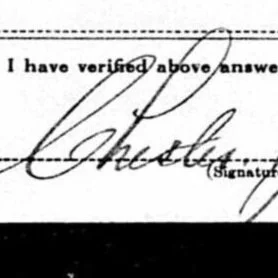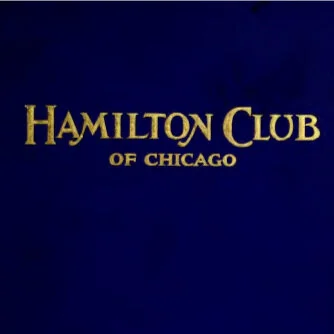Chester Goetz
The most difficult personality to write about in Leon Goetz’s life is his brother, Chester. While Leon was running nickelodeons in the Dakotas, or working as a traveling projectionist, or whatever he was doing prior to teaming up the the Gruwell theater couple, his younger brother Chester worked alongside their father as a tailor. This situation persisted until at least 1917, when both boys were issued WWI draft cards and their respective employments were recorded.
Chester Goetz’s WWI draft card.
Leon Goetz’s WWI draft card.
From what I have seen so far, Chester, unlike his brother, stayed on the right side of the law. While he may have benefited from some of Leon’s schemes (we can’t be sure how profitable any of them were), I have not yet found evidence that he was involved in any of the more questionable enterprises. While I can speak of ‘the Goetz Brothers’ as a business partnership during the 1920s and 1930s and be technically correct, cracks were beginning to appear in the partnership as early as 1921. The ultimate cause of the strain was, I believe, that the men had different characters. While Leon was always looking for the ‘angle’; it was Chester’s steady stewardship that formed the bedrock of their theater business and the reason Monroe enjoys its iconic Goetz Theater and Sky-Vu drive-in today.
In 1921, when Leon was arrested and indicted for violating the Mann Act, his first move was to sell his share of the New Monroe Theater; the Movie Inn and connected Lobby Lunch; as well as his part of the brothers’ lease on the Washington Theater to his wife Bertha. The only explanation I can think of for this move would be that Leon felt selling to his wife would protect the business from the fallout of his personal actions, whatever they may have been exactly. A few days thereafter, Bertha Goetz sold her stake to local man Alvin Marti, thereby ending Leon Goetz’s connection with any theater business in Monroe.
Marti purchased all concerns for “$1 and other valuable considerations” which is somewhat vague and is the same price Bertha paid Leon, but might be explained when the circumstances of Leon’s indictment come to light. At the time of the Marti transactions, Chester did not feel compelled to sell his share in any of their Monroe enterprises which, to me at least, speaks in favor of Chester’s not being involved personally with shady behavior— indeed Chester’s name is never associated with “A Romance of the Movies”, it was a movie produced by Leon Goetz alone, though it was shown at the theater they owned jointly.
Reviewing trade journals that mention either Goetz brother in the 1922-1929 period turns up at least as many mentions of Chester’s name as Leon’s, and gives the impression that the day-to-day management of their chain of theaters was Chester’s responsibility. The ‘wildcard’ business ventures, such as establishing a presence at the New York City film exchanges; the integrated sound/film equipment business; entering the film rental business with “Call of the Rockies” etc.; and finally the ‘health film’ endeavor were Leon’s projects. If Leon was responsible for managing the theater chain, it’s difficult to see how he would have had time for all of these.
Neither brother returned to Monroe for the 1931 inauguration of the Goetz. At the opening ceremony the editor of The Monroe Times spoke in their absence. It was Chester who orchestrated and oversaw the opening of the Goetz Jr. and the Sky-Vu Drive-In and Chester who fended off attacks from union leaders organized out of Janesville. I have yet to find any conflicts with the public over inappropriate content at the theater under Chester’s management, which leads me to think there were few if any. What I have seen leads me to believe that his establishment was widely viewed as a family-friendly one. It was Chester who did the work reintegrating into the community that had been alienated by Leon’s business schemes. Ultimately, it was Chester’s family who remained dedicated to the Monroe business and whose stewardship has preserved the institutions people enjoy today.








